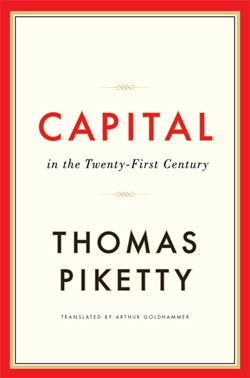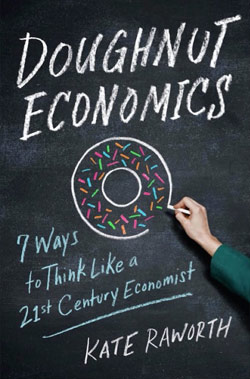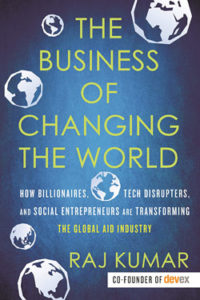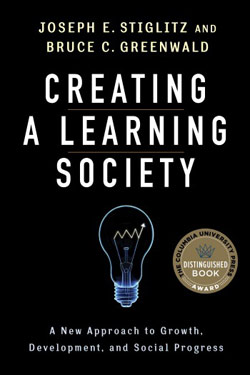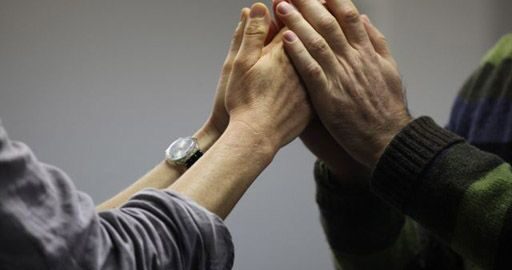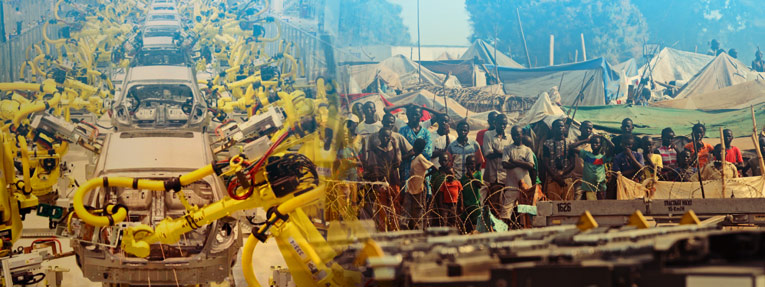
The Changing World Economy
Understanding how the world economy works will be the key to forming a just and sustainable future.
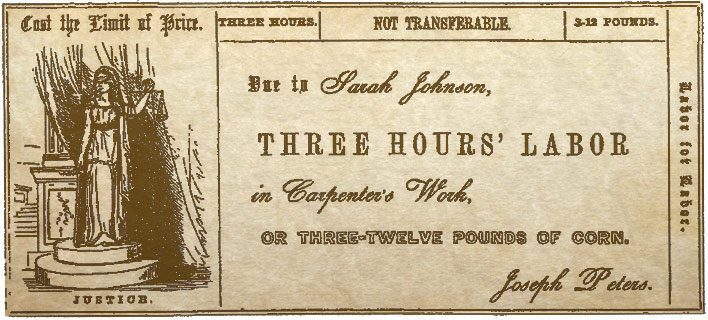
Trust, Faith and Confidence – Value and the Role of Money
For most of human existence, interchange has been governed by social reciprocity, our sense of obligation to be helpful, fair, and just according to tradition. So how did money – originally invented as a mere token of social obligation – get confused with true wealth and become the end in itself?
Debt, Trust and Money | Power, Money, and Stability | Alternative Currency: Substitute Moneys and Cryptocurrencies

Risk, Gambling, and Financialization
Since 1970, the financial sector has increasingly turned away from the financing of industry and commerce and concentrated instead on the business of making money from money – the process of financialization – resulting in new ways to extract money without adding value to the rest of the economy.

Forgiveness of Debt and the Creation of Money
The Covid 19 pandemic has forced us to think that debts may need to be forgiven, something which cuts right across the ideology of the debt-economy in which we live.

Aid: Ending Global Poverty
Growth of average incomes globally has resulted in a stunning decline in abject poverty. Yet more than a third of the world’s population – some 2.2 billion people – live on less than $2 a day, many without access to clean water, electricity, sanitation, and basic protection of the law. And the gap between rich and poor continues to widen. What can be learned from the successes and failures of the West’s $2.3 trillion aid investment over the past 50 years? What are the most promising solutions? And where do we go from here?
Global Poverty Today | Multilateral and Bilateral Aid | The World of the Poor: Problems and Promising Solutions
Travel the Journey

Download Our Free Discussion Guide:
Creating the World We Want
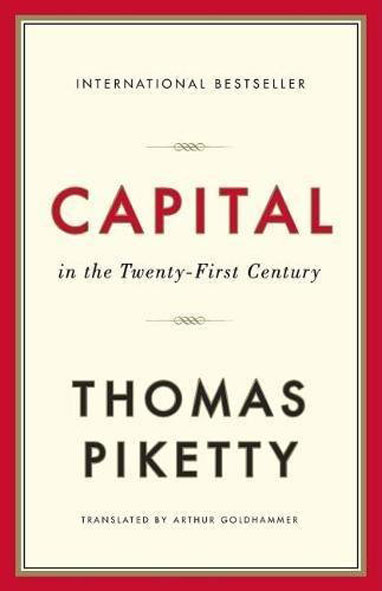
Capital in the Twenty First Century
Thomas Piketty
A leading economist documents the trend of income inequality through history, stressing that the way an economy functions is directly related to a power structure that is determined and maintained by the few who hold the wealth.
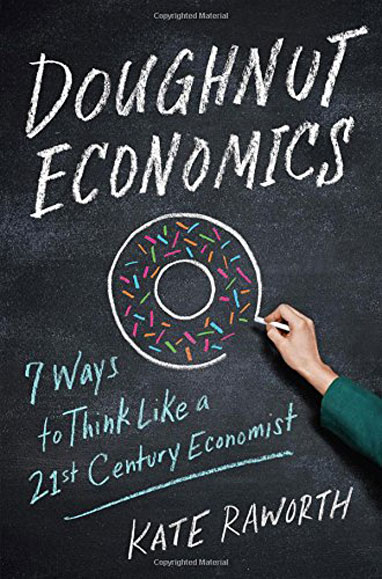
Doughnut Economics
7 Ways to Think Like a 21st Century Economist
Kate Raworth; reviewed by George Kasabov
A “renegade economist” advances a new, more comprehensive and regenerative economic model – one based on a view of humans as socially adaptable beings in a world of limited natural resources. A view that factors in the love and caring of family life, the kindness and cooperation of society, and the search for meaning and morality over the getting and spending of money as the essential aim of human existence.
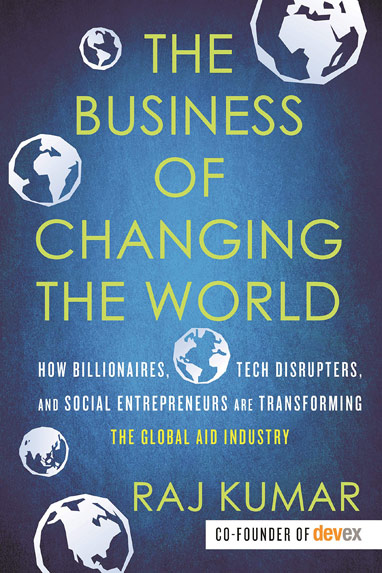
The Business of Changing the World
How Billionaires, Tech Disrupters, and Social Entrepreneurs Are Transforming the Global Aid Industry
Raj Kumar
In 2000, Raj Kumar and friends created Devex, an online community for global development that matches up organizations with funding opportunities and provides the largest database of grants, tenders, and other funding information. This book was written 20 years later to provide a clearer picture of how the aid industry operates, and where it’s headed.
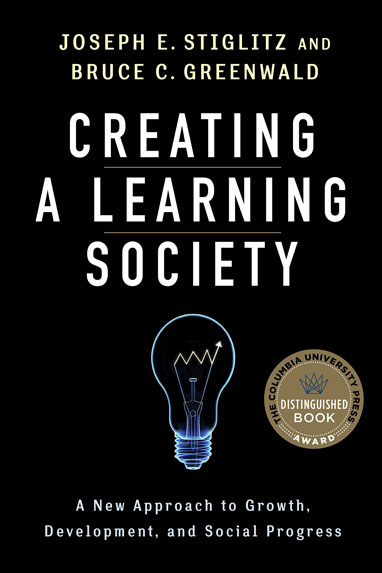
Creating a Learning Society
A New Approach to Growth, Development, and Social Progress
Joseph E. Stiglitz
A Nobel economist and a leading finance expert posit the view that learning is more important to growth and development than the accumulation of capital. The traditional view of an inherently efficient free market, and of government regulation as the major source of economic difficulty, impedes the raising of a society’s standard of living by discouraging the production and dissemination of knowledge.
Further Reading
External Stories and Videos
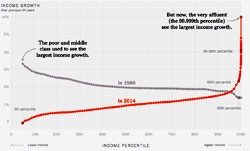
Our Broken Economy, in One Simple Chart
David Leonhard, New York Times
Three leading economists provide a dramatic look at the skyrocketing income growth of the 0.01% very rich vs. all other Americans over the past 34 years.
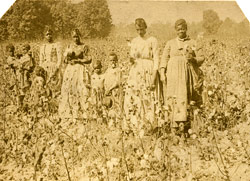
In Order to Understand the Brutality of American Capitalism, You Have to Start on the Plantation
Matthew Desmond, Project 1619 New York Times
The founding of the American economy on a brutal system of slavery clearly demonstrates the interconnections of the particular forms of exploitation which grew out of the colonial mindset. The same greed and indifference to human values appeared across the world, from Leopold’s Congo, to Bolsonaro’s Brazil, to the Middle East today.

Cocoa’s Child Laborers
Matthew Desmond, Peter Whoriskey and Rachel Siegel, Washington Post
Mars, Nestlé and Hershey pledged nearly two decades ago to stop using cocoa harvested by children. Yet much of the chocolate you buy still starts with child labor.
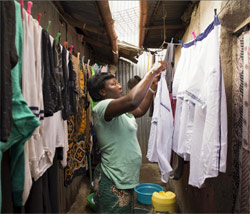
Time to Care
Oxfam Report to the 2020 World Economic Forum
The heavy and unequal responsibility of care work perpetuates gender and economic inequalities. This has to change.
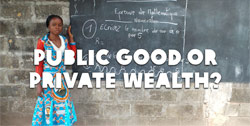
Public Good or Private Wealth
Oxfam Report to the 2019 World Economic Forum
“The gap between rich and poor is pulling us apart. It stops us from beating poverty and achieving equality between women and men. Yet most of our political leaders are failing to reduce this dangerous divide. It does not have to be this way. Inequality is not inevitable – it is a political choice. Concrete steps can be taken to reduce it.”
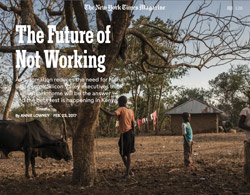
The Future of Not Working
Annie Lowrey, New York Times
As automation reduces the need for human labor, some Silicon Valley executives think
a universal income will be the answer — and the beta test is happening in Kenya.
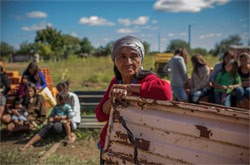
Cash, Food and Health Care All Help the Poor, but Something’s Still Missing
Nicholas Kristof, New York Times
In a remote village in Paraguay, indigenous people are gaining hope and leaving poverty. The approach would work in rich nations, too.
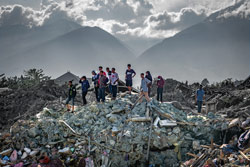
Ten Humanitarian Crises to Look Out for in 2019
The New Humanitarian
The New Humanitarian predicted these 10 crises and trends would help shape their coverage in 2019. Here’s why they have the editors’ attention, and should demand ours.
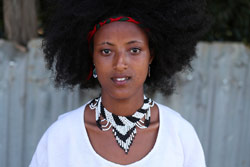
Why 2018 Was the Best Year in Human History!
Nicholas Kristof, New York Times
There’s plenty to fret about. But a failure to acknowledge global progress can leave people feeling hopeless and ready to give up. In fact, the gains should show us what is possible and spur greater efforts to improve opportunity worldwide.

